Compressed air is the fourth utility in any modern packaging facility – as essential to production as electricity, water, and gas. An unreliable or poor-quality supply compromises product safety, operational efficiency, and profitability. This guide demonstrates how compressed air powers packaging operations, outlines how to comply with industry-specific standards, and explains how to reduce operating costs through more brilliant compressed air system design.
Based in Peterborough, our factory-certified engineers provide rapid support across East Anglia and the Midlands, including key industrial hubs in Spalding, Lincoln, Cambridge, and Northampton. We have prepared this guide to outline the critical role of air compressors for the packaging industry and explain how selecting the right technology and service partner is essential for maintaining compliance and productivity.
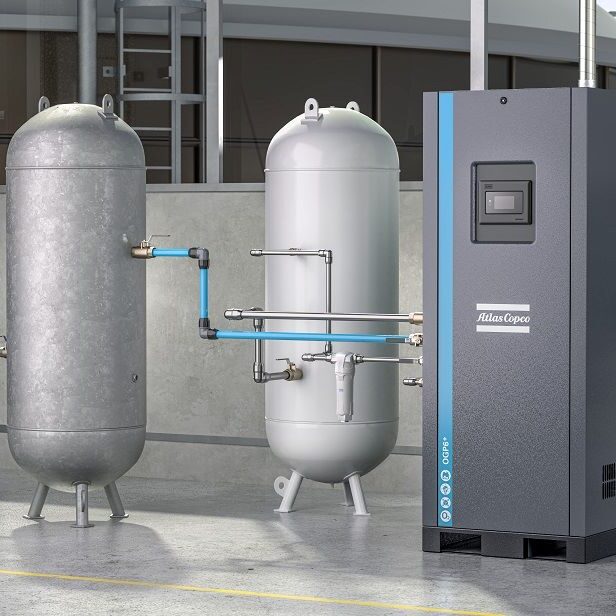
Compressed Air: The "Fourth Utility" in Packaging
Packaging operations depend on a consistent supply of high-quality compressed air for core processes that directly impact the final product. Its applications are diverse and mission-critical across every sector.
- Food & Beverage: A reliable compressed air system is essential to:
- Power pneumatic conveying systems
- Clean and sterilise containers before filling
- Drive sealing and cutting machinery
- Provide the foundation for Modified Atmosphere Packaging (MAP)
- Sort and palletise finished goods
- Pharmaceutical & Medical: No compromises in aseptic processes can be allowed. Sterile product filling and handling, tablet production and coating, pneumatic control valves in sensitive applications – all these need compressed air of certified ISO 8573-1 Class 0 quality for contamination-free air supply.
- Plastics & General Goods: PET blow moulding, robotic pick-and-place automation, and high-speed labelling – all these production steps require a high-quality, trouble-free compressed air supply for uniform product quality and high production rates.
Air Quality, Compliance & Risk Mitigation
Air purity is a critical control point for packaging that comes into contact with food, medical, or other sensitive products. Spoiled air could result in product spoilage, expensive recalls, audit failures, and permanent brand damage.
ISO 8573-1: 2010 is an international standard for air purity classification. It categorises air according to acceptable levels of particulates, water, and oil.
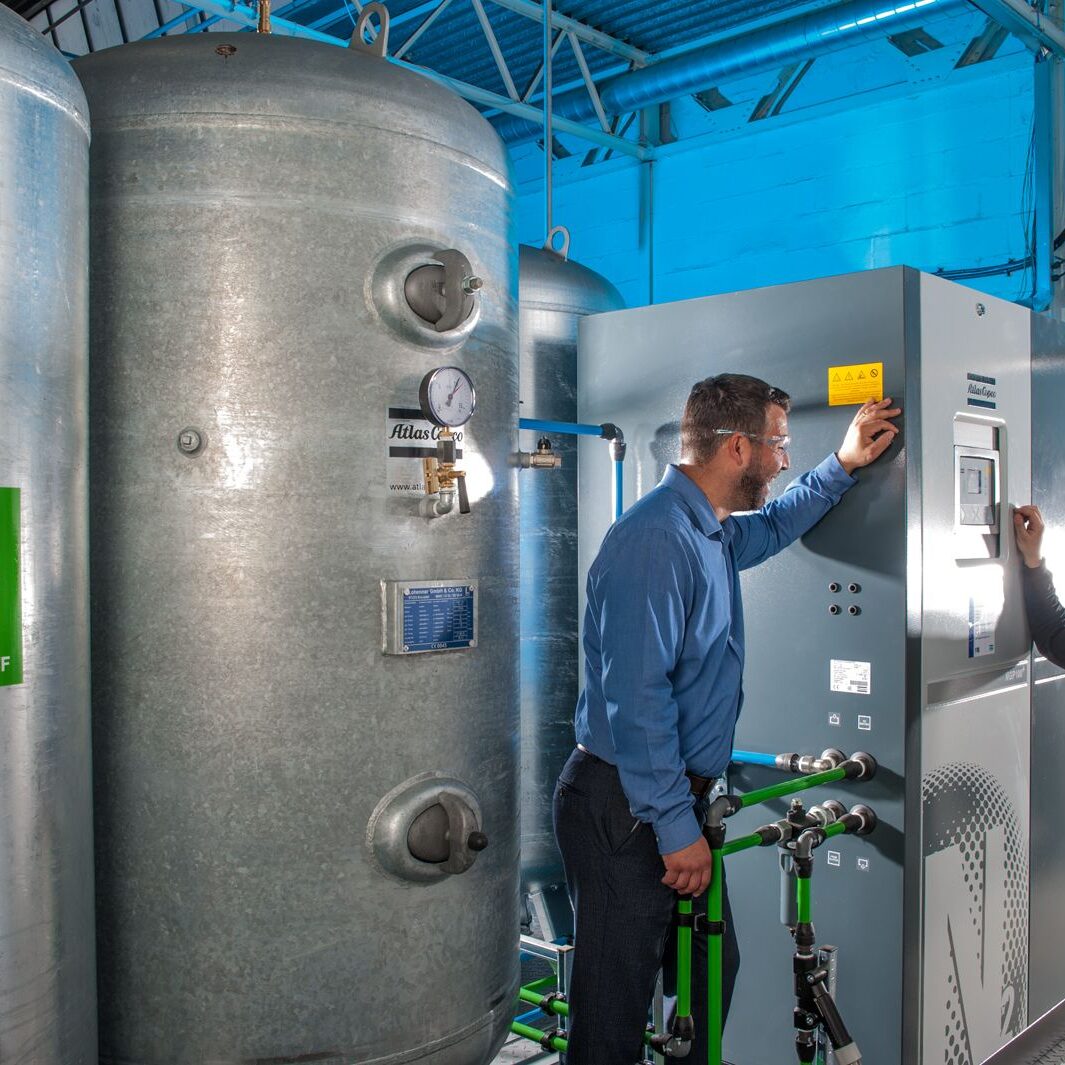
- Class 1.2.1 is the widely accepted standard for air compressors in the food and beverage industry, requiring extremely low levels of particles, a −40°C pressure dew point to inhibit microbial growth, and a near-zero oil content.
- Class 0 is the most stringent classification, required for sterile pharmaceutical and medical environments. It guarantees 100% oil-free air.
Compliance with these standards is required to meet regulatory compliance with the BRCGS, GMP, and HACCP. All pressure systems should also comply with UK safety legislation, including the Pressure Systems Safety Regulations (PSSR 2000), which is intended to assure continued safety by use of a Written Scheme of Examination (WSE).
Atlas Copco Technologies for Packaging
As a premier partner and branch of Atlas Copco, Anglian Compressors provides industry-leading technology and energy-efficient air compressors, specifically engineered to meet the demands of the packaging sector. The right choice of air compressors for the packaging industry is foundational to operational success.
1. Oil-Free Compressors
For applications where purity is paramount, oil-free technology eliminates the risk of oil contamination at the source. This is a fundamental difference compared to systems that rely solely on filtration. The choice between oil and oil-free air compressors is a critical decision for any quality-focused packaging line.
- ZR/ZT Oil-Free Screw Compressors: These workhorses are Class 0 certified and designed for continuous 24/7 operation in high-demand packaging lines.
- SF Scroll Compressors: Ideal for laboratory, medical, or secondary point-of-use applications that require quiet, compact, and 100% oil-free air.
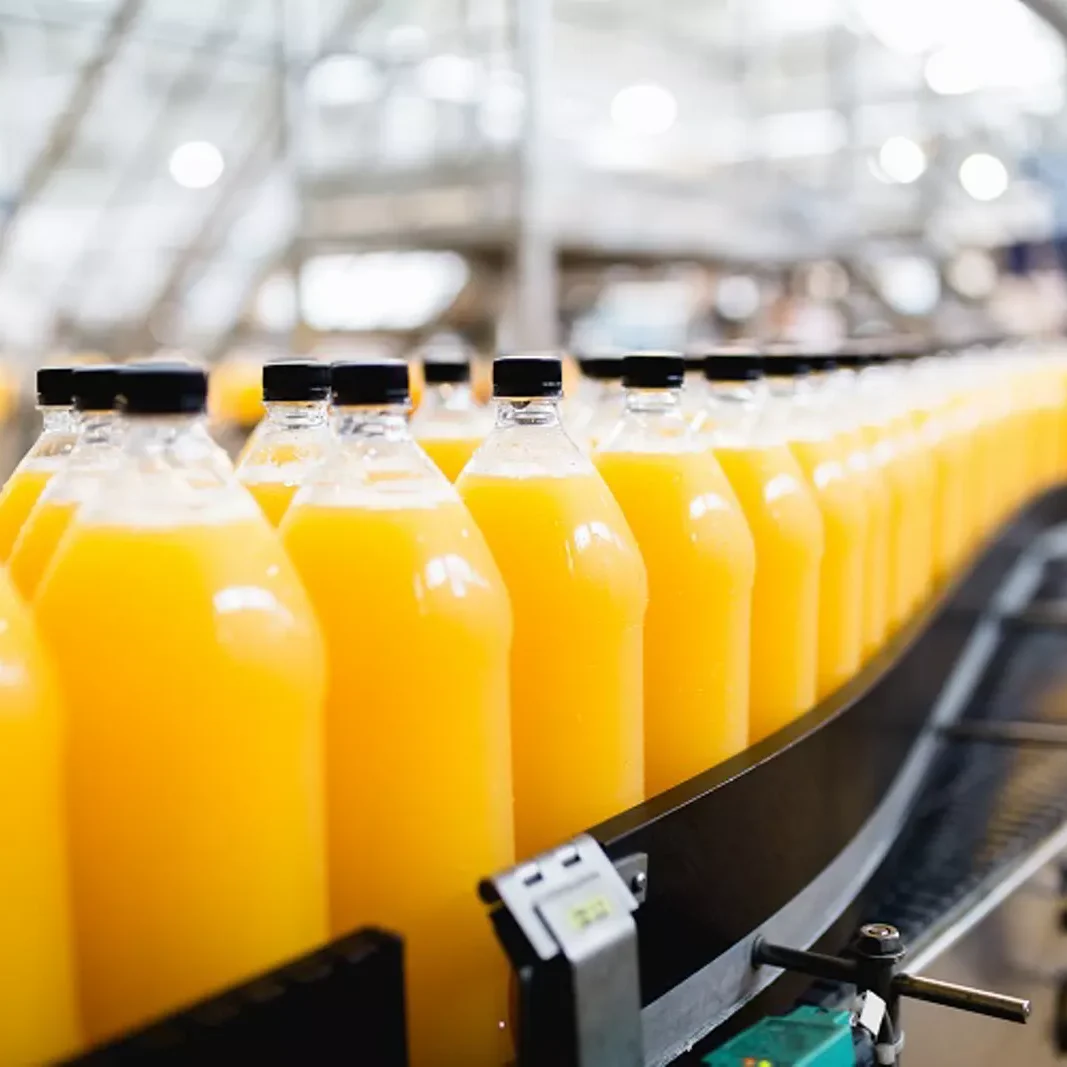
2. Variable Speed Drive (VSD) Compressors
Packaging lines rarely have a constant air demand. VSD compressors intelligently match air production to your real-time needs, preventing the significant energy waste of traditional fixed-speed models.
- Reduce energy consumption by 35–50%, often delivering a full ROI within 12–24 months.
- Deliver stable system pressure for more consistent product quality.
- Reduce mechanical wear, extending the lifespan of the equipment.
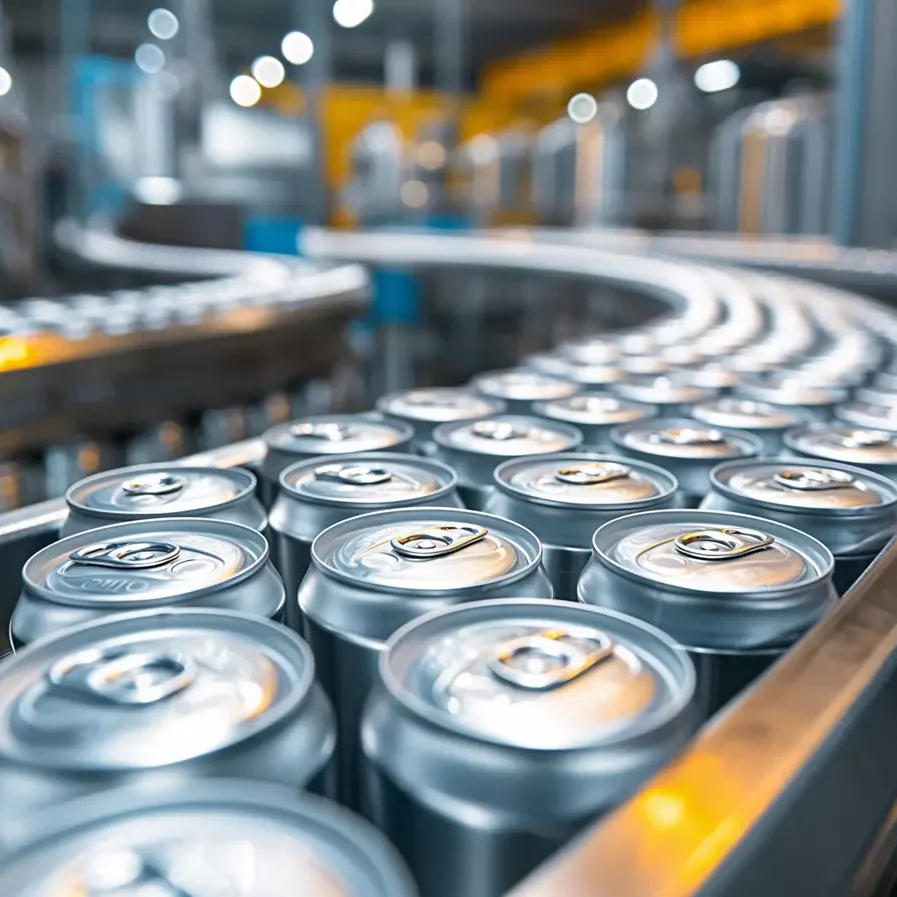
3. Complete Air Treatment
Achieving a specific ISO class is impossible without a correctly specified air treatment system. While refrigerated dryers are suitable for general-purpose applications, moisture-sensitive processes require more specialised equipment. For applications demanding food-grade compressed air, a desiccant Compressed Air Dryer is essential to reach the -40°C dew point required by Class 1.2.1. This must be paired with Compressed Air Filters and a robust condensate management system.
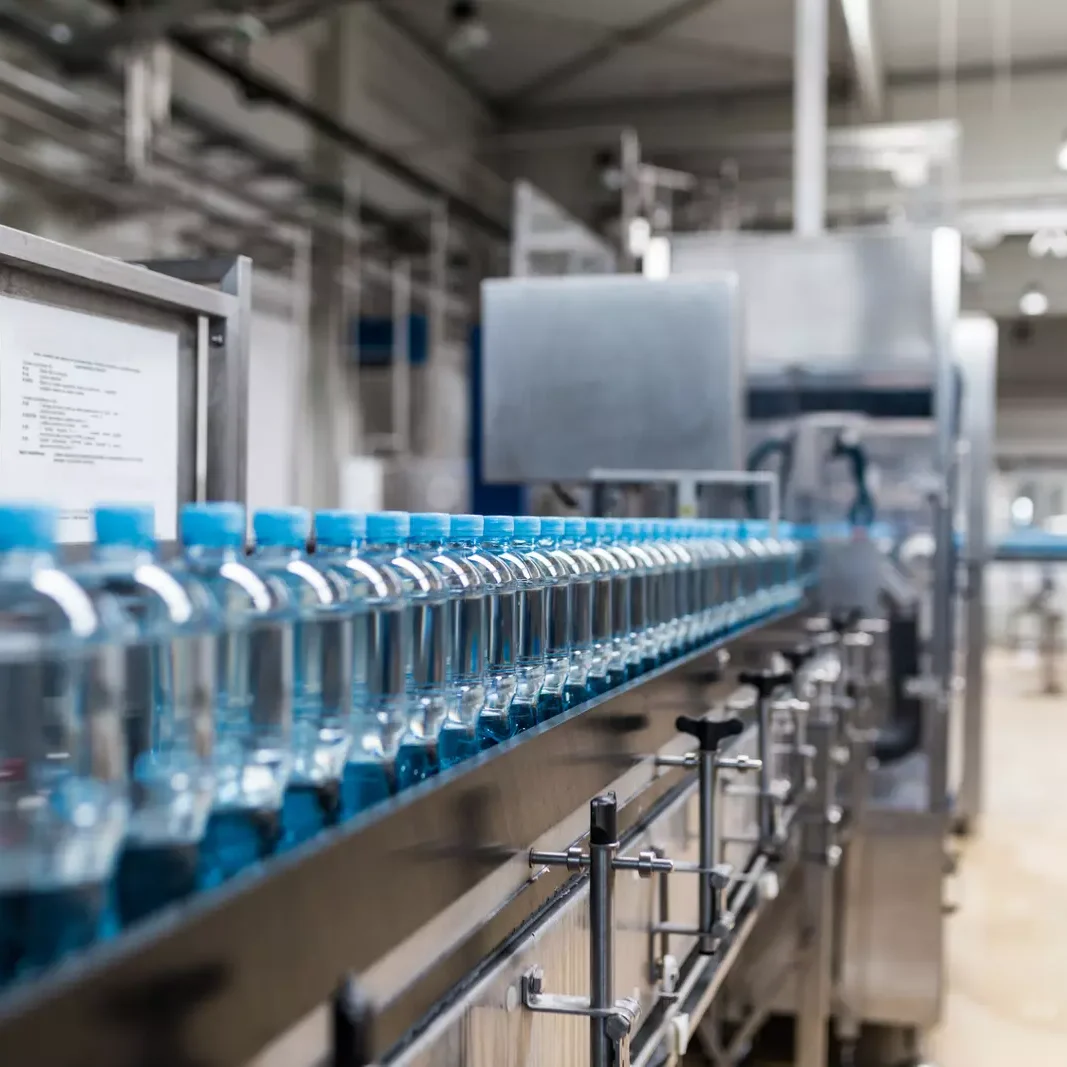
On-Site Nitrogen Generation for MAP
Nitrogen is used in a range of packaging processes to perform Modified Atmosphere Packaging (MAP), which can lengthen the shelf life of products such as fresh meat, snack foods, and coffee.
Atlas Copco NGM/NGP+ generators enable on-site nitrogen generation, eliminating the need for bottled gas, and can reduce nitrogen costs by as much as 80%. On-site generation also removes cylinder deliveries and rental charges, as well as potential supply chain issues.
It also means you have complete control over your supply, generating nitrogen to the exact level of purity your application needs (99.9%+) for a consistent and reliable product quality.
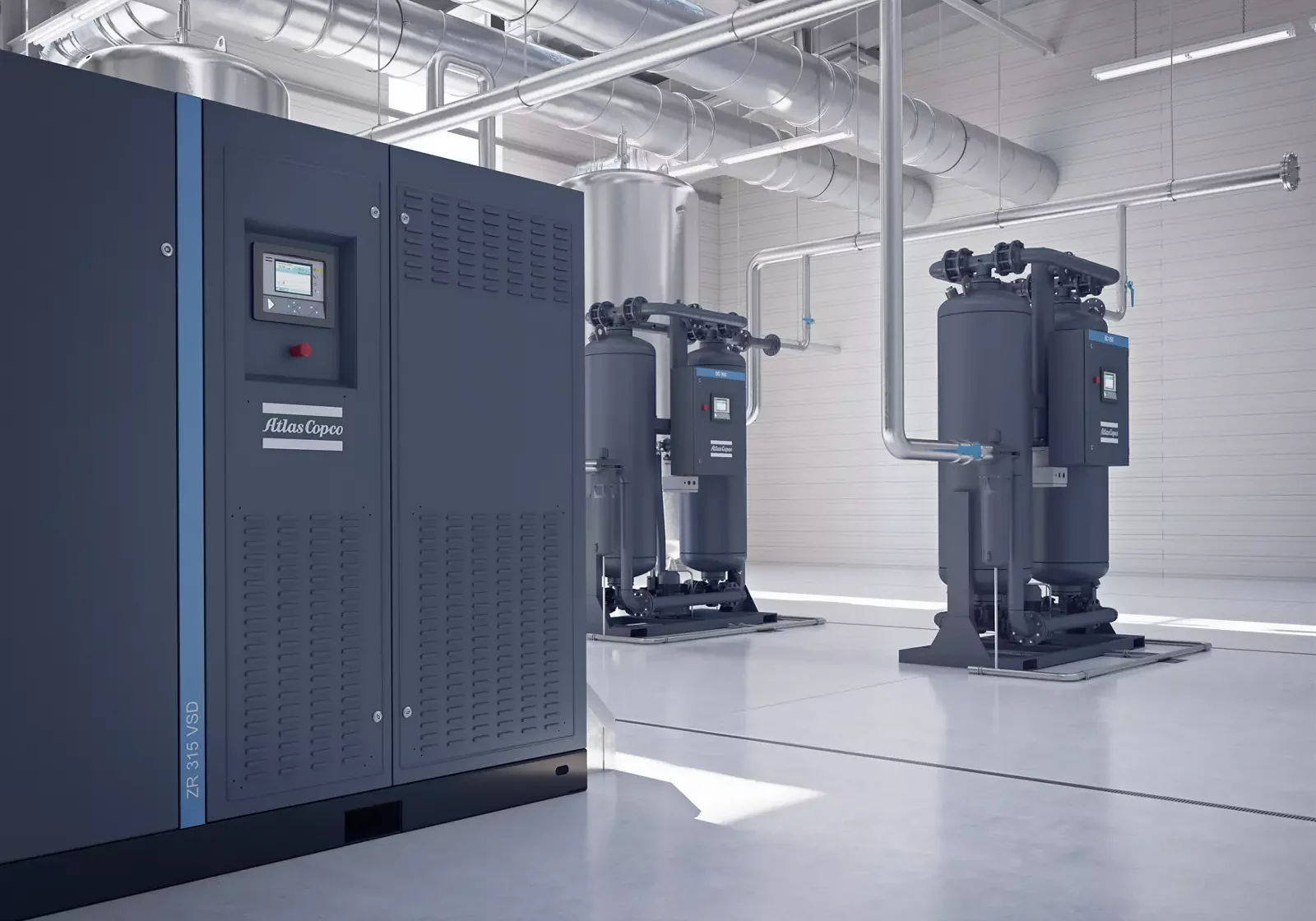
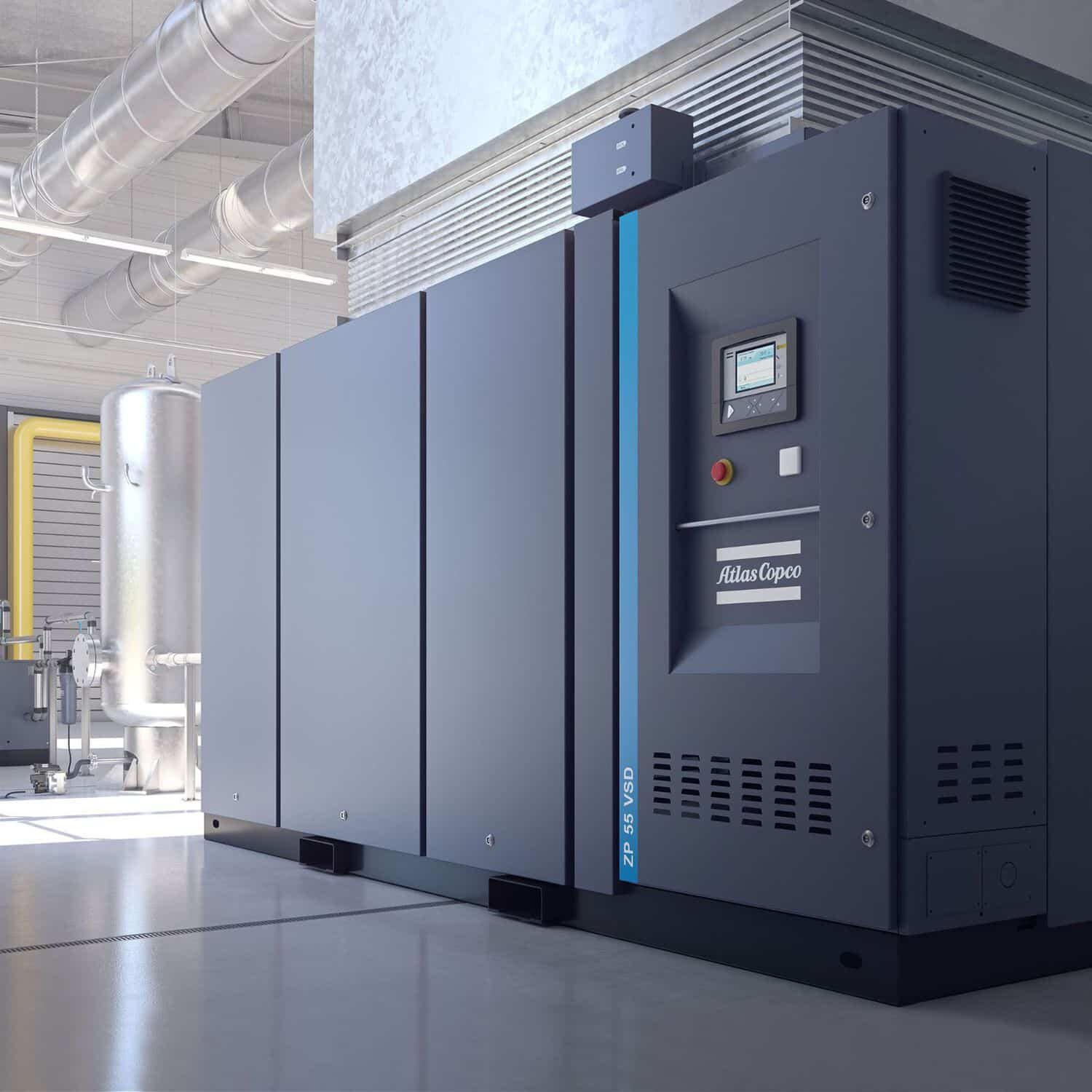
Why Choose Anglian Compressors, a Branch of Atlas Copco?
With over 45 years’ experience, we have unrivalled knowledge in the design, installation, and service of Atlas Copco compressors, dryers, and nitrogen generators. Our team is all fully certified by the manufacturer.
Lifecycle Services for the Packaging Sector
We provide a complete support framework to maximise your compressed air system's uptime, efficiency, and compliance. Complete system design and turnkey installation
- Scheduled preventative maintenance plans
- Energy audits
- Ultrasonic leak detection surveys
- SMARTLINK remote monitoring to predict issues before they cause downtime
- ISO 8573-1 Air Quality Testing to support BRC and other audits
- A Written Scheme of Examination (WSE) to ensure PSSR compliance
Ready to Optimise Your Packaging Operation?
Contact our engineers today to schedule a free compressed air system audit.
We’ll help you lower costs, increase uptime, and stay audit-ready.
